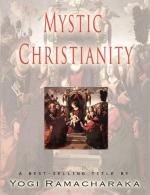Little acts of kindness bestowed here and there among the humbler classes tended to have Jesus looked upon and spoken of as a friend of the people, but which reputation excited the jealousy of the authorities who held that such acts could be prompted by none other than a selfish motive, and that motive the incitement of the masses to rebellion in the interest of Himself as a Messiah. And so, we see His very acts of kindness and compassion served to increase the suspicion and hatred which the authorities, both ecclesiastical and temporal, had always felt toward Him.
His desire to alleviate the sufferings of the poor and wretched took Him much among these people and away from the so-called higher classes. The “plain people” were regarded by Him as the salt of the earth, and they, in turn, regarded Him as their champion and advisor. And especially to the sick did He devote His time and powers. He made many marvellous cures, a few only of which were recorded in the New Testament narratives. The occult legends state that these cures were of daily occurrence and that wherever He went He left behind Him a trail of people healed of all kinds of disorders, and that people flocked for miles to be healed of their infirmities. The Gospels relate that He cured great numbers of people by the simple process of laying on of hands (a favorite method of occult healers) “he laid his hands on every one of them and healed them.”
It is related that at Capernaum his attention was directed toward a madman, who suddenly cried out, “I know Thee, Thou Holy One of God,” whereupon Jesus spoke a few authoritative words and cured him of his malady, by methods that will describe the nature of the man’s psychic disturbance to any advanced student of occultism. Demoniac possession is not believed in by orthodox Christians of today, but Jesus evidently shared the belief in obsession held by students of Psychism and similar subjects, judging from the words He used in relieving this man from his malady. We advise our students to read the Gospel records in connection with these lessons, in order to follow the subject along the old familiar paths, but with the additional light of the interpretation of Mystic Christianity.
The growing reputation of Jesus as a healer of the sick soon taxed His physical powers to the utmost. He felt Himself called upon to do the work of a dozen men, and His nature rebelled at the unequal task imposed upon it. It seemed as if all Capernaum were sick. Her streets were crowded by seekers after health and strength. At last He perceived that His work as a Teacher was being submerged in His work as a Healer. And, after a period of prayer and meditation, He put aside from Him the claims of humanity for the healing of physical ills, and turning His back upon the waiting patients at Capernaum, He once more started forward on His pilgrimage as a Preacher of the Message, and thereafter would heal physical ills only occasionally,




